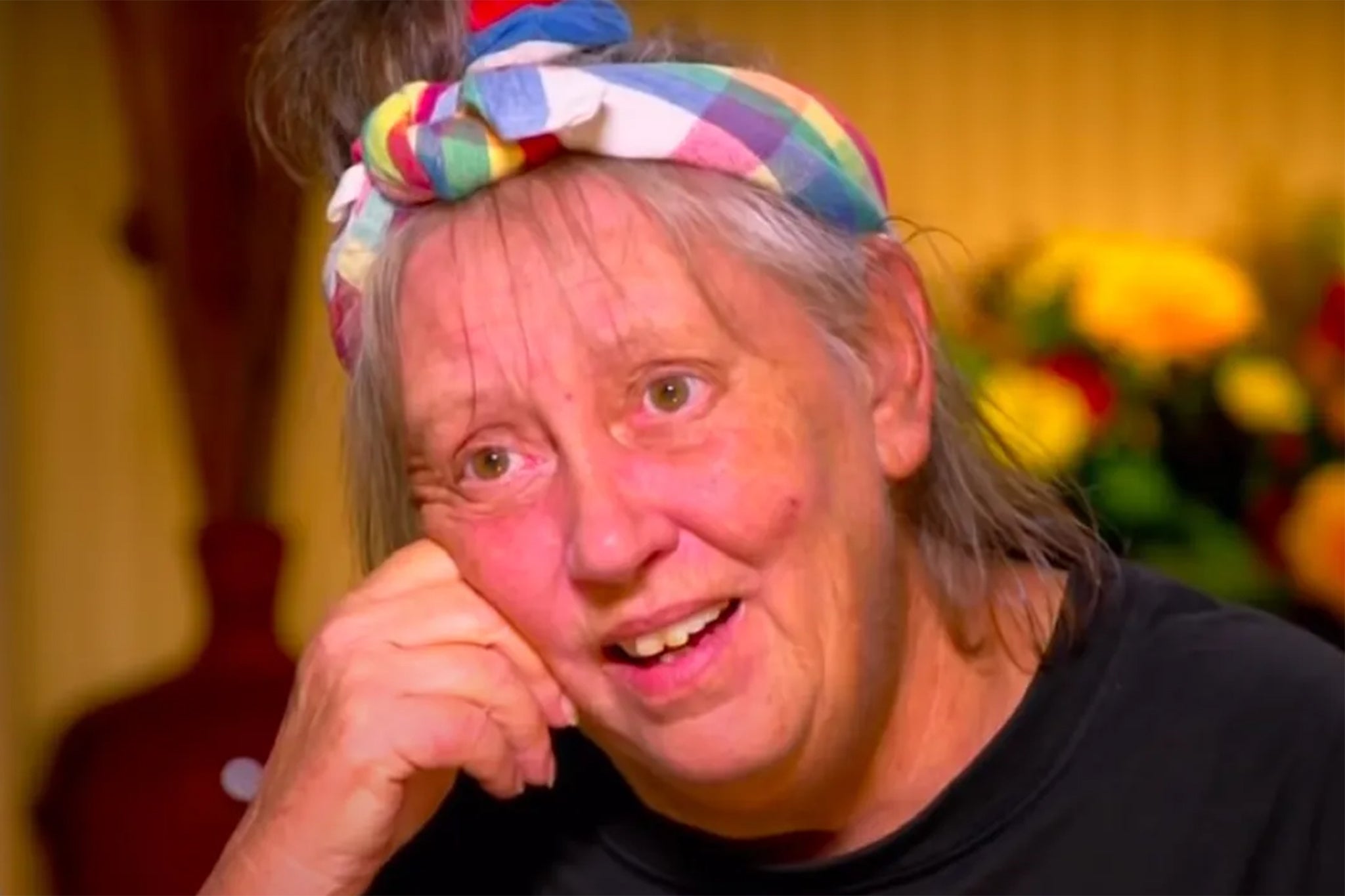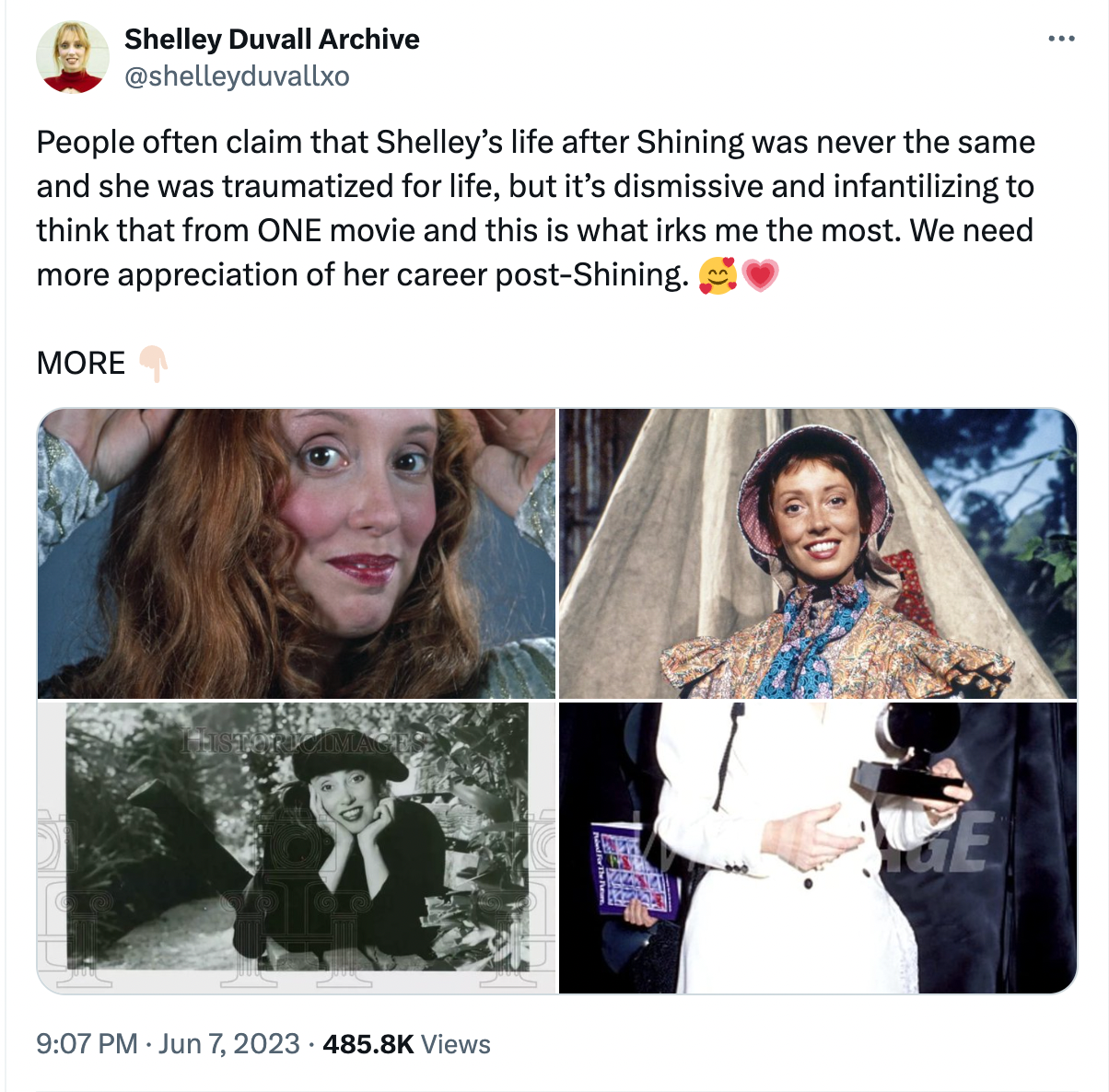No, Shelley Duvall was not traumatized by Stanley Kubrick on The Shining – she embraced it
Wendy Torrance actor took a 20-year hiatus from acting between 2002 and 2022
Your support helps us to tell the story
From reproductive rights to climate change to Big Tech, The Independent is on the ground when the story is developing. Whether it's investigating the financials of Elon Musk's pro-Trump PAC or producing our latest documentary, 'The A Word', which shines a light on the American women fighting for reproductive rights, we know how important it is to parse out the facts from the messaging.
At such a critical moment in US history, we need reporters on the ground. Your donation allows us to keep sending journalists to speak to both sides of the story.
The Independent is trusted by Americans across the entire political spectrum. And unlike many other quality news outlets, we choose not to lock Americans out of our reporting and analysis with paywalls. We believe quality journalism should be available to everyone, paid for by those who can afford it.
Your support makes all the difference.Almost immediately after The Shining was released in 1980, rumors began to emerge about Shelley Duvall’s alleged mistreatment on set by director Stanley Kubrick.
Kubrick, a famed perfectionist, insisted on dozens of takes for every scene, which often required Duvall as the tortured wife of Jack Nicholson’s hotel caretaker to be in a state of harrowing distress.
The truth, however, is that Duvall repeatedly defended Kubrick and his methodology for years before her death on July 11, at the age of 75.
The Shining was indeed a grueling shoot for Duvall, who said the role required her to cry 12 hours a day, five or six days a week for nine months straight. “Going through day after day of excruciating work. Almost unbearable,” she told Roger Ebert in 1980. “But from other points of view, really very nice, I suppose,” she added.
It was widely reported that the director had traumatized the actor during filming in order to elicit her performance and that the pair often argued on set. “If it hadn’t been for the volley of ideas and butting heads together it wouldn’t have come out as good as it did,” Duvall told Kubrick’s assistant Leon Vitali in 1979.
“At the end of the day, we knew that it was for the purpose of enhancing the performance. There were no grudges.”

In a 2021 interview with The Hollywood Reporter, Duvall was asked whether she felt Kubrick had been unusually cruel or abusive to her as has been reported. “He’s got that streak in him,” she admitted. “He definitely has that. But I think mostly because people have been that way to him at some time in the past.
“He was very warm and friendly to me,” she added. “He spent a lot of time with Jack and me. He just wanted to sit down and talk for hours while the crew waited. And the crew would say, ‘Stanley, we have about 60 people waiting.’ But it was very important work.”
Duvall also did not struggle to find nor shy away from work in the years immediately after The Shining. While filming the horror movie in London, Robert Altman cast her as Olive Oyl in his big-screen adaptation of Popeye, opposite Robin Williams.

Watch Apple TV+ free for 7 days
New subscribers only. £8.99/mo. after free trial. Plan auto-renews until cancelled

Watch Apple TV+ free for 7 days
New subscribers only. £8.99/mo. after free trial. Plan auto-renews until cancelled

From 1982 to 1987, Duvall narrated, hosted and was executive producer of the beloved children’s television program Faerie Tale Theatre. Each episode boasted an all-star cast: Williams, Christopher Reeve, Carol Kane, Bud Cort, Bernadette Peters, and Mick Jagger among them.
The myths about The Shining were fuelled by Duvall’s retreat from public life and acting, followed by questions about her mental health.
For years before her death, the most commonly Googled questions about the actor were: What happened to Shelley Duvall? and Why did Shelley Duvall disappear?
From 2002 to 2022, Duvall appeared in nothing. She finally returned for an independent horror film, The Forest Hills, about a man tormented by nightmarish visions after suffering head trauma in the Catskill Mountains.
In a profile of the actor published earlier this year The New York Times attributed Duvall’s disappearance to a combination of events: the 1994 Northridge earthquake, which damaged her Los Angeles home, the toll of one of her brothers falling ill, which prompted her to return to her native Texas 30 years ago, and the curse of fame.
“It’s all over the internet: ‘Look at her now’ and ‘You won’t believe what she looks like now.’ Every celebrity gets that treatment,” Dan Gilroy, her partner since 1989, told the Times.
“People see her public battles with mental illness and Shelley simply aging and suddenly people think it’s connected to Shining because they were led to think that way from internet rumors,” a young female fan who befriended Shelley in later life tweeted last year.
“People often claim that Shelley’s life after Shining was never the same and she was traumatized for life, but it’s dismissive and infantilizing to think that from ONE movie and this is what irks me the most. We need more appreciation of her career post-Shining.”

Paying tribute to his lead actor on X, Kubrick’s estate tweeted: “Shelley’s career was varied and long.
“Despite being dogged with exaggerations of her treatment on set, Shelley was always vocal about her experience filming The Shining saying she ‘wouldn’t trade it for anything’ because ‘working with loveable Stanley was a fascinating learning experience.’
“Our thoughts are with Shelley’s friends and family.”

Join our commenting forum
Join thought-provoking conversations, follow other Independent readers and see their replies
Comments